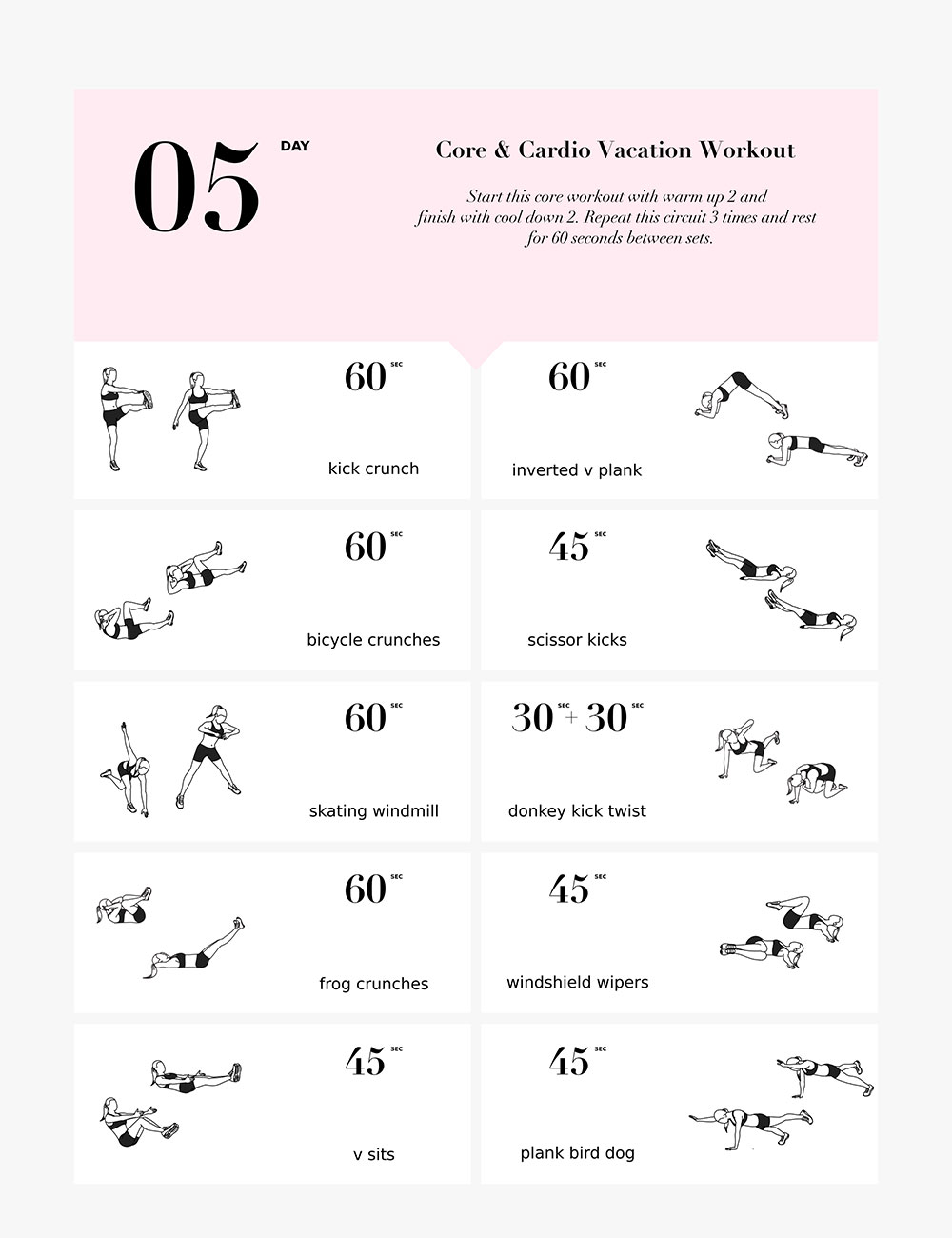
It is important to change your workout routine once every six- to eight weeks in order to reach your fitness goals. This will allow your body to adjust to new circumstances. This can be accomplished through varying intensity, duration, and set composition. This helps you keep track of your progress.
Intensity changes
You should change your routine every couple of months or so to avoid monotony. If you become bored with your exercise routine, it is more likely that you will skip it or quit altogether. Keep a log of your training progress to track your progress over time. If you notice that your progress is slower than usual, it might be time to change your routine.
The rule of thumb is to train for three to four weeks. However, it can vary depending on your goals and how long you have been training. You can always change your workout if you feel it's not giving you results.
Changing duration
There are many reasons you might want to change your routine. Many people change their routines because they get bored or are unsure about something. Too much variety can slow down your progress. It could also slow you down and prevent you from reaching your fitness goals. There are some guidelines you can follow.

Although there is no single answer to this question, a general rule of thumb is that you should switch up your workout routine every three or four weeks. Or whenever you feel stuck. People find that if they change their workouts often, they see better results. Changes in routines can keep you alert and stimulate your brain.
FAQ
How can I start with fitness?
Start small. You can start by taking 10 minutes each week to walk around the block. This will teach you the basics of movement and give your muscles time for adaptation. Once you've mastered this simple form of exercise, try adding more steps to your daily routine.
Do I need to get warm before going out?
Warming up before a sport can help reduce muscle soreness and increase performance. There are many methods you can use to warm up, including running, jumping rope and stretching. Start slowly and gradually increase your pace and intensity.
What are resistance training exercises?
Resistance training is performed with weights and other objects. Lifting weights will strengthen your arms. Resistance training helps build muscle mass and bone density. It also promotes overall strength.
What should I eat before I work out?
No. No. However, if you're hungry after working out, you might want to snack on something light like fruit or yogurt.
What if I am exercising and want to eat?
Yes. Yes. Low-calorie snacks like watermelon and carrots, celery apples, bananas, grapes, celery, celery, celery, celery, celery, apple, bananas, and carrots are best. These foods are high in nutrients, which can improve your performance during training.
Statistics
- Globally, 81% of adolescents aged 11-17 years were insufficiently physically active in 2016. (who.int)
- Globally, 28% of adults aged 18 and over were not active enough in 2016 (men 23% and women 32%). (who.int)
- Physical activity confers the following maternal and fetal health benefits: a decreased risk of pre-eclampsia, gestational hypertension, gestational diabetes (for example, 30% reduction in risk) (who.int)
- One study showed that adults who watch more than 4 hours of television daily had an 80% higher risk of death from cardiovascular disease. (heart.org)
External Links
How To
How to burn belly fat faster
Belly Fat is usually seen as a problem when we want to lose weight. If you look at it, belly fat is actually a positive thing. Your organs will be protected by the amount of belly fat. So let's see how to burn belly fat fast.
The two main factors that make us store body fat are stress and lack of exercise. The cortisol hormone stimulates stress which makes us hungry. Cortisol levels are increased by insulin. The excess calories stored as fat are then stored by insulin. An increased appetite can be caused by a lack of sleep. Exercise helps to break down these extra calories.
There are many ways you can reduce belly fat. You can choose to try any of these options, depending on your budget. These are some ways to quickly lose belly fat.
-
Reduce the amount of food you eat. Instead of eating three large meals per day, try to eat smaller meals. This will result in fewer calories.
-
Drink plenty of fluids. Water flushes out toxins, and keeps your body hydrated. Also, drinking water before every meal will keep you feeling full longer so you won't overeat.
-
Avoid unhealthy snacks. If you're looking for quick fixes, snack foods like chips, cookies, candies, etc. This might be tempting. These sweet treats can be tempting, but they are high in empty calories and sugar. Instead, choose healthy alternatives like fruits, veggies, nuts, seeds, and whole grains.
-
Do strength training exercises at least three times per week. Strength training builds muscle mass that burns more calories, even when it is done while you rest. It strengthens bones and muscles, ligaments, muscles, tendons, heart, lungs, as well as joints.
-
Regularly walk or stretch. Stretching can improve flexibility, mobility, and reduce back pain. Walking for 30 minutes is a great way to burn calories.
-
Reduce alcohol intake. You should cut down on alcohol consumption. It adds no nutritional value to your diet.
-
Slowly lose weight. Finding out your current weight is the first step in losing weight. Then calculate your ideal weight by adding 5% to 10% of your total body weight. Once you have calculated your target body weight, you can begin to cut calories by 500-1000 calories every day until your goal is reached.
-
Avoid processed foods. These foods contain high levels of sugar, salt, and preservatives. While processed foods can be convenient, they don't offer enough nutrients to ensure your health.
-
Don't skip breakfast! Consuming breakfast increases concentration, memory and energy levels. Protein (like eggs), fiber and complex carbohydrates (like oatmeal) should be included in breakfast.
-
Have regular bowel movements. Gas and bloating can result from irregular bowel movements. This can be prevented by drinking plenty of water and increasing fiber intake.